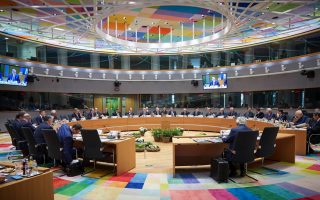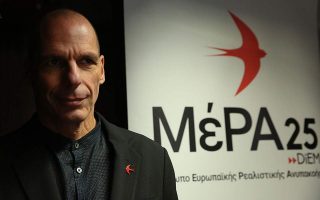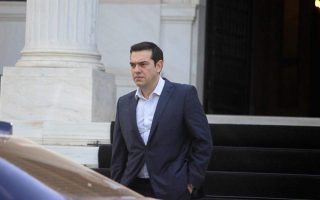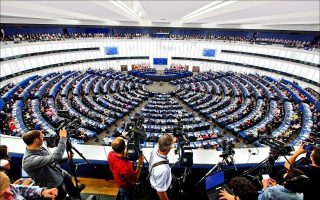EU leaders at odds in search of ‘Mr or Ms Europe’

German Chancellor Angela Merkel and French President Emmanuel Macron disagreed on Tuesday over who should be the next chief of the European Commission as EU leaders began bargaining over names for the bloc's top jobs in the next five years.
A bloc-wide election last week returned a European Parliament with a splintered centre and gains by pro-EU liberals and Greens as well as eurosceptic nationalists and the far right, making a common agenda harder.
"We won't choose Mr. or Ms. Europe today, but just draw a balance after the European election," Luxembourg's liberal prime minister, Xavier Bettel, said on arriving to talks among all 28 national leaders in Brussels.
Held once every five years, the European Union election means the heads of major EU institutions will now be replaced.
Merkel said on arrival at the gathering that she backed centre-right German lawmaker Manfred Weber to be the next head of the EU's powerful executive, the European Commission, after Luxembourg's Jean-Claude Juncker steps down on Oct. 31.
Macron pushed back, listing the EU competition commissioner, Denmark's Margrethe Vestager, the bloc's Brexit negotiator, centre-right Frenchman Michel Barnier, and Dutch Social Democrat Frans Timmermans – but not Weber – as appropriate candidates.
The premiers of Spain and Sweden explicitly backed Timmermans, while those of Ireland and Croatia spoke for Weber.
Luxembourg's Bettel supported Vestager, while eastern leaders demanded geographical balance in awarding the prominent Brussels roles.
Dutch Prime Minister Mark Rutte, also mooted as a possible contender in the obscure recruitment process, said Tuesday's meeting was about "content rather than people" and should focus on agreeing policy priorities for the coming years, including climate change, economy and migration.
Horse-trading
The centre-right European People's Party (EPP) and the centre-left Socialists & Democrats (S&D) group were reduced to 326 seats together in the new, 751-strong chamber in Sunday's vote, 50 short of the majority needed to determine by themselves who should head the Commission, as they had in the past.
Other big roles up for grabs later this year include the head of the European Parliament and the European Central Bank, the bloc's foreign policy chief and the head of the European Council who represents leaders of the 28 EU member states.
The EU would risk an institutional logjam if talks drag on, leaving it unable to make pivotal policy decisions at a timewhen it faces a more assertive Russia, China's growing economic might and an unpredictable US president.
Leaders of a majority of parties in the newly elected chamber called on Tuesday on national government leaders to nominate a lawmaker to replace Juncker.
The EPP's Weber has so far failed to rally the other EU assembly groups behind him.
Stripped of their longtime combined parliamentary majority, the EPP and S&D are looking for support from the liberal ALDE and the Greens, since the four groups together would command 504 seats, comfortably enough to approve or reject any nomination made by national leaders.
Among national government leaders, only seven are now with the EPP. French officials have said the liberal Macron could endorse the centre-right Barnier to succeed Juncker, but was keeping his options open.
On Tuesday, a flurry of separate face-to-face meetings took place in Brussels before all the leaders, including outgoing British Prime Minister Theresa May, convened at 1600 GMT.
Their chairman, ex-Polish premier Donald Tusk, expects to continue consultations after the initial debate to have names ready for the new European Parliament's approval in July. Otherwise the whole process risks getting delayed until autumn.
The difficult-to-call process will lead to an arcane compromise. Unanimity is not required though it is hard to see a candidate succeeding against the will of more than just a handful of leaders, as that would risk damaging their future cooperation and stalling the EU's decision-making.
[Reuters]





